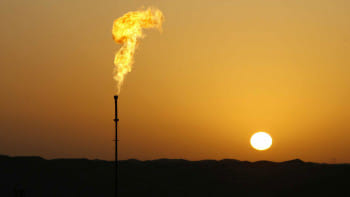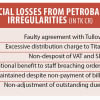What to make of Petrobangla’s new oil and gas exploration tender?

In a landmark development, Bangladesh took a notable stride in its energy sector by announcing new oil and gas exploration ventures. On March 10, Petrobangla floated an international tender for shallow and deep sea oil and gas exploration. Despite being delayed by at least a decade, this decision marks a pivotal moment in the country's quest for energy independence. Bangladesh, blessed with promising geological formations, has long been recognised for its potential in the gas sector. However, the exploitation of these resources has been limited. The recent announcement signals a shift towards unlocking the full potential of the nation's hydrocarbon reserves and exploring untapped reserves.
The exploration tender has been launched with much domestic appreciation. Yet, amidst the global investment shift towards green energy sources, the level of attention from international investors remains to be seen. Moreover, the introduction of this initiative is quite delayed. As the world transitions towards cleaner energy sources, Bangladesh's strategic move underscores its commitment to sustainable development while harnessing its natural resources for the benefit of its citizens. However, the country faces economic challenges due to its heavy reliance on oil and gas imports. Exploring untapped hydrocarbon reserves could alleviate this dependency and mitigate the economic crisis. From an energy planning perspective, Bangladesh is moving towards a transformation that includes LNG, hydrogen, and ammonia as primary fuels all being import-oriented, and so energy sustainability remains a major concern.
The success of Bangladesh's exploration endeavours will depend on various factors, including technological implementation, regulatory capability, trade negotiation expertise, professionalism, transparency, and geopolitical influence. Overcoming these challenges will be crucial for realising the potential benefits of oil and gas exploration in the region. Nevertheless, the prospects are promising. With the right strategies in place, Bangladesh has the potential to address its deep energy crisis and reduce its dependency on foreign currency reserves.
The international tender for shallow and deep sea oil and gas exploration sparks some questions regarding its potential success in attracting offshore oil and gas exploration. Between 2016 and 2019, Petrobangla proposed conducting extensive deep and shallow sea surveys, aiming for a multi-client survey. However, the government's indecision on the proposal and subsequent delays, exacerbated by the Covid pandemic, resulted in wasted time. In 2022-2023, Bangladesh, in collaboration with a foreign consortium (Schlumberger), finally initiated a crucial multi-client survey in the Bay of Bengal, with a focus on the deep sea area. While such surveys are vital for major oil companies, concerns arise regarding the failure to release historically preserved survey data, to involve relevant international oil companies (IOCs) in past surveys, and to organise the sale of this new survey data into accessible packages. Petrobangla has outlined the availability of eight data packages for purchase by interested IOCs. However, before delving into the specifics, it's crucial to define what makes these packages lucrative. Understanding why IOCs would perceive these data packages as valuable and view both deep and shallow sea blocks as having potential is essential.
Bangladesh's oil exploration journey dates back to 1974 when six foreign oil companies surveyed our sea. Subsequent surveys by Cairn India, Santos Ltd, ConocoPhillips, and Posco Daewoo generated valuable reports, stored in Petrobangla's database. However, the reluctance to utilise this existing data and the lack of incentives in the Offshore Model Production Sharing Contract (PSC) hindered progress. The Ministry of Power, Energy, and Mineral Resources (MPEMR) and Petrobangla's combined failure to leverage stored data for bidding purposes underscores the need for proactive measures. Hence, the absence of high-quality data that failed to attract IOCs in the past. While some IOCs have shown interest, concerns persist about the inefficient management, poor trade negotiation skills, and unprofessional mentality within Petrobangla and the ministry. Effective management and the deployment of qualified professionals are essential for enhancing the attractiveness of the bidding process.
Past experiences with companies like ConocoPhillips, Santos, Posco Daewoo, and Woodside Energy highlight challenges related to unattractive PSCs and fixed gas prices. While the new PSC addresses these issues, other unconventional concerns remain regarding the non-transparent intention to appoint preferred contractors, inclined conflict of interest towards LNG import groups, geopolitical issues in accessing the Bay of Bengal, and circumvention of bidding processes. Resolving these issues is imperative to maintain investors' interest. The departure of IOCs due to dissatisfaction with the current management, particularly the state minister of the MPEMR, underscores the urgent need for leadership changes. Despite efforts to address concerns and offer financial incentives, including adjustments to gas prices, companies like Santos may not return to Bangladesh without substantial management reforms.
In terms of oil and gas extraction in shallow seas, Bangladesh has faced significant setbacks, particularly in two potential blocks—SS-10 and SS-11. Myanmar has successfully extracted substantial gas reserves from wells named Mia and Shwe since 2013, following the resolution of a maritime boundary dispute in 2012. The reasons behind Bangladesh's delay since 2013, whether attributed to corruption, inefficiency, or diplomatic issues, needs a thorough examination. Woodside Energy, an Australian company, expressed interest in exploring for oil and gas in five blocks adjacent to Myanmar, where they had confirmed reserves. Despite this, Bangladesh did not pursue the proposal based on advice from advisors. Two survey biddings were cancelled by the ministry because their favoured company did not get them. Geopolitical considerations may also be at play, with the US seeking entry into Bangladesh's deep sea territories to counter China's influence in the region. Major companies like ExxonMobil and Chevron have shown keen interest. However, doubts persist regarding the technical and negotiating capabilities of Petrobangla and the MPEMR. These concerns underscore the complexity of the challenges involved in navigating Bangladesh's oil and gas sector.
Certainly, the MPEMR minister and energy advisor bear significant responsibility in this matter. Their role involves safeguarding the interests of specific groups. If the prevailing uncertainty remains unresolved, it appears that even with a favourable PSC, companies like Santos may opt not to return, exacerbating the situation.
In addition to the challenges mentioned, there are also objections regarding tender-related expenses. The extensive advertisement in nine newspapers across the country, paid reports in prestigious publications like The Economist, and the six-month roadshow are perceived as wasteful expenditures of time and resources. In response to this author's questions, Khondkar Saleque, an expert in energy sector tendering and negotiation, suggested that Petrobangla should make historically preserved data accessible to interested parties. Rather than conducting inefficient roadshows abroad, Saleque proposes inviting interested IOCs to Bangladesh for in-depth discussions. This approach aims to streamline the process, minimise unnecessary expenses, and facilitate more direct engagement with potential investors.
Faiz Ahmad Taiyeb writes on sustainable development and is a public policy critic. He has several books to his credit, including 'Fourth Industrial Revolution and Bangladesh', 'Bangladesh: Development Trajectory And Democracy Deficit' and '50 Years of Bangladesh Economy.'
Views expressed in this article are the author's own.
Follow The Daily Star Opinion on Facebook for the latest opinions, commentaries and analyses by experts and professionals. To contribute your article or letter to The Daily Star Opinion, see our guidelines for submission.


 For all latest news, follow The Daily Star's Google News channel.
For all latest news, follow The Daily Star's Google News channel. 












Comments